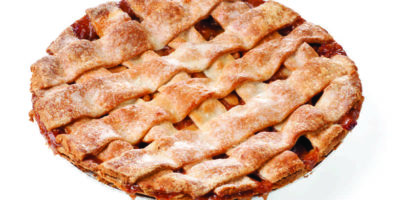Cultural Comfort Food
When I am away from Israel, the local foods are among the things I miss most: spicy ground za’atar, fresh olive oil, crispy-soft hot pita. And in a delightful memoir by Abbie Rosner, Breaking Bread in Galilee: A Culinary Journey into the Promised Land (Hilayon Press, $25), I have found a new way to whet my appetite. Part cultural history, part anthropology, part food writing, Breaking Bread in Galilee explores the food of the Bedouin north through the memoir of Rosner’s friendships with her Arab neighbors.
A resident of northern Israel for several decades, the American-born Rosner found herself captivated by the ancient foodways of the Bedouins in the Galilee: their systems of gathering wild vegetation, their methods of milling grain, their traditional recipes. “I approached men and women from different cultures with courtesy and a sincere interest in learning about their culinary traditions. In return, gatherers, farmers and cooks of every ethnic background graciously shared their knowledge and invited me into their homes and hearts.”
Each of her memoir’s short chapters charmingly tells the story of a particular foodstuff, introducing the farmers and laborers who opened their lives to Rosner’s culinary inquiry. Rosner documents the old-time ways that are disappearing with industrialization, the taboun ovens and foraged spiky greens. One captivating scene portrays a small mechanical mill in a village courtyard to which farmers brought small quantities of wheat. “The rough wooden thresher with its tall hopper looked like it was straight out of an old-time farm museum…. The old man put his hand into the stream of chaff and examined it, anxious not to lose any precious grain.” Rosner intersperses her accounts of current practices with detailed discussions of agriculture, society, and Israeli history, providing color and background for her soothing vignettes.
Rosner is a true food writer, and she describes the produce she encounters with lyrical flair. “In the summer, there are sacks of green almonds, their fuzzy shells pliable enough to crack open between your teeth in order to reach the sweet, bleached kernel inside.” Her descriptions of recipes and cooking procedures made me want to follow her into the kitchen. Yet not only do we learn about the foods that she eats — wild asparagus and roasted green wheat and mandrakes — but we see the true warmth in the relationships that she has forged. From the mothers who furtively take off their headscarves in the kitchen, comparing their graying hair, to the elderly teacher who kindly instructs her in Arabic, the neighbors Rosner meets give her hope for Jewish and Arab coexistence in the North. A Western reader might be surprised to read of the porous borders between Arab and Jewish communities in Israel, and it is a pleasure to hear a note of optimism in her account.
If one note rings a bit contrived in this book, it is the Biblical epigraphs that begin many chapters; they seemed a superfluous tool for connecting Jewish tradition to the agriculture of the ancient land. But that is a minor quibble in an otherwise superb book. Breaking Bread in Galilee will appeal to those interested in Israeli culture, in traditional food production, or in delicious produce.
Sara N. S. Meirowitz is a writer, teacher, and vegetarian soup chef, as well as a rabbinical student at Hebrew College in Boston.


